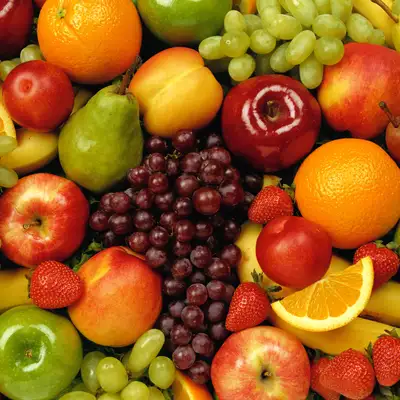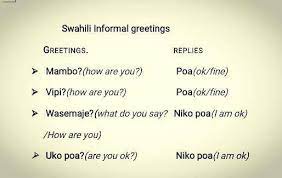Call us now:
FRUITS AND VEGETABLES IN SWAHILI

Fruits and vegetables/matunda na mboga za majani embe (mango), ndizi (banana) nanasi (pineapple), chungwa (orange) parachichi (avocado), papai (pawpaw) limao (lemon), ndimu (lime) tikiti maji (water melon), boga (pumpkin) matembele (potato leaves), zabibu (grapes) ukwaju (tamarind), tufaa (apple) nazi (coconut),…




